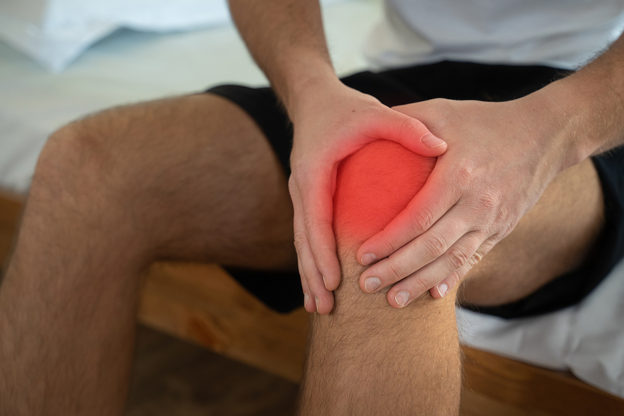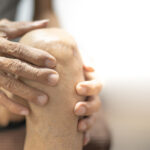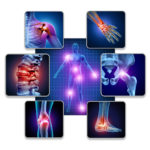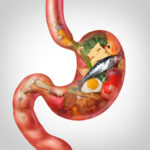By David Blyweiss, M.D., Advanced Natural Wellness
August 17, 2020
I’m always sympathetic when new patients come hobbling into my office with “bad knees”.
Believe it or not, it’s not just senior citizens who have this gripe. People from all age groups suffer knee pain.
In fact, here in the U.S., the number of people between 45 and 64 years of age who have symptoms of knee arthritis is nearly identical to those 65 and older.
I know this sound surprising. You may also be shocked to learn that about 14% of knee arthritis cases extend to people who are younger than 45.
This is pretty similar to what I see in my practice.
So why are so many people – including younger folks – dealing with knee issues? More on that in a moment.
But first, let’s talk about treatment…
The treatment many of these patients are receiving for their knee pain is downright deplorable. Physicians are falling victim to mainstream medicine’s love affair with drug treatments.
MD Exposes the Hidden Danger to Your Eyes

When your eyesight starts to fail, it's a real problem. Suddenly you can't go to the grocery store... you can't get to the doctor if you have an emergency... you can't meet your friends for dinner…
Your "regular" doctor doesn't have time to keep up with the latest research. And the same goes for eye doctors. They go to school to learn how to fit you for glasses and contacts, but have no way of preventing the damage and loss of eyesight that threatens your freedom and independence.
Let me show you something that explains a LOT about how your eyes work.
In my FREE Special Report, I'll show you a HUGE, untapped resource for your eyes that safely and naturally restores clear, effortless eyesight.
Click here to get started...
If you’ve ever experienced any type of joint pain, you know that the first thing your mainstream doctor will do is recommend an NSAID pain reliever. These days, docs are even prescribing narcotic and opioid pain relievers to patients with arthritic knees.
This is a huge problem!
Between 2007 and 2015, NSAID prescriptions from physicians specializing in knee osteoarthritis more than doubled; and prescriptions for narcotics tripled. At the same time, recommendations for more physical activity and lifestyle changes both dropped by around 50%.
That’s just a crying shame…
I warn all of my patients against NSAIDs. They do little to alleviate pain, and they greatly increase your chances of a heart attack or stroke. (This is true even if you only use them for a few days.) They also damage your kidneys, gut and can cause liver failure. Every year 100,000 or so people are hospitalized for NSAID use and about 15,000 of them die.
To top it off, NSAIDs actually accelerate knee arthritis. In fact, NSAID users require joint replacements more often than patients who don’t use them.
Why has Knee Arthritis Doubled Since the Mid-1900s?
Ok, let’s circle back and talk about the root of this problem. Why are so many folks dealing with knee pain these days?
Now, I’ll bet you didn’t know that, historically, arthritis was not the plague that it is today. From prehistoric times to the mid 1900’s, the prevalence didn’t change a lot. But it has nearly doubled since the World War II era.
So, what caused the change? Well, here are a few other changes that have happened since that time.
- America, as a whole, has become less physically active. This results in less development of knee cartilage and weaker muscles.
- A large proportion of the U.S. population turned to diets rich in refined carbohydrates and processed foods.
- A lack of physical activity and poor diet choices have lead to excess body weight, which adds stress to already weak knee cartilage and muscles.
- All of these contribute to low grade inflammation, which further exacerbates joint issues.
And as I mentioned earlier, these days, mainstream medicine is treating osteoarthritis of the knees with pain meds instead of promoting healthy lifestyle activities. These drugs do nothing to treat the actual disease.
Are You Suffering From...
- Love handles and a pot belly
- Romance that isn't what it used to
- Forgetfulness and inattention
- Low (or no) strength and endurance
- A sex drive that's shifted into neutral...or worse
If so...you may have Mature Male Burnout. Click here to discover more about this unique condition and what you can do about it.
Instead of loading up on pills, some smart lifestyle changes can make a world of difference in helping or preventing your knee pain symptoms.
Now the chance of experiencing knee osteoarthritis in your lifetime is about 45%. So if you don’t have any symptoms, you’ll want to make sure it stays that way. Even if you already experience symptoms, you can still make choices that can improve your physical function and reduce pain levels.
Here are some suggestions.
1) Maintain strong leg muscles. It’s especially important to maintain strong leg muscles to support your knees. If your knees are normally pain-free, exercises like squats, lunges and sprints are great for these muscle groups.
2) Choose low impact activities. If your knee joints are already painful, opt for low impact activities. Walking, bicycling and swimming are generally great for everyone. Performing exercises in the pool is a great idea, too. And a lot of my patients see great knee benefits with traditional tai chi and yoga sessions.
3) I also recommend eating a healthy Mediterranean style diet that helps slow down the decay of cartilage and slashes inflammation. It can also help you lose weight, which is a big factor when it comes to sidestepping arthritic knees. Carrying around excess pounds is strongly linked to the development of arthritis, particularly when it comes to the knees.
To help on the nutrition front, you may want to consider a few healthy supplements. Hyaluronic acid (HA) is a great weapon when it comes to cushioning joints, protecting your cartilage and easing joint movement. I recommend taking 150 mg. of a good quality hyaluronic acid supplement daily.
Another good choice is chicken cartilage extract. It contains type II collagen. This is a type of collagen that’s needed for the synthesis and repair of connective tissue. Taking 400 mg daily may provide anti-inflammatory activity and improve joint flexibility.
If you already suffer from arthritis pain, I suggest adding a couple more supplements.
Green lipped muscle extract is one. Just 150 mg. daily can reduce joint tenderness, morning stiffness and improve pain levels.
I also like curcumin. Take 500-1,000 mg. twice a day to shut down inflammation. Look for one that contains 2-5 mg of bioperine (a black pepper extract) to help boost absorption.
SOURCES:
Arthritis Foundation. Arthritis By the Numbers / Book of Trusted Facts & Figures. 2018; v2; 4100.17.10445
Samannaaz S, et al. Recommendation Rates for Physical Therapy, Lifestyle Counseling and Pain Medications for Managing Knee Osteoarthritis in Ambulatory Care Settings. Cross‐sectional Analysis of the National Ambulatory Care Survey (2007‐2015). Arthritis Care & Research, 2019.
FDA Drug Safety Communication: FDA strengthens warning that non-aspirin nonsteroidal anti-inflammatory drugs (NSAIDs) can cause heart attacks or strokes. Safety Announcement. U.S. Food and Drug Administration. July 2015.
Cho E, et al. Prospective Evaluation of Analgesic Use and Risk of Renal Cell Cancer. Archives of Internal Medicine, 2011; 171 (16): 1487.
Hauser, RA. The Acceleration of Articular Cartilage Degeneration in Osteoarthritis by Nonsteroidal Anti-inflammatory Drugs. Journal of Prolotherapy. 2010;(2)1:305-322.
Walllace IJ, et al. Knee osteoarthritis has doubled in prevalence since the mid-20th century. Proc Natl Acad Sci U S A. 2017 Aug 29; 114(35): 9332–9336.
Song J, et al. Do Inactive Older Adults Who Increase Physical Activity Experience Less Disability: Evidence From the Osteoarthritis Initiative. J Clin Rheumatol. 2017 Jan;23(1):26-32.
Dyer J, et al. Effect of a Mediterranean Type Diet on Inflammatory and Cartilage Degradation Biomarkers in Patients with Osteoarthritis. J Nutr Health Aging. 2017;21(5):562-566.
Oe M, et al. Oral hyaluronan relieves knee pain: a review. Nutr J. 2015; 15: 11.
Crowley DC, et al. Safety and efficacy of undenatured type II collagen in the treatment of osteoarthritis of the knee: a clinical trial. Int J Med Sci. 2009; 6(6): 312–321.
Coulson S, et al. Green-lipped mussel (Perna canaliculus) extract efficacy in knee osteoarthritis and improvement in gastrointestinal dysfunction: a pilot study. Inflammopharmacology. 2012 Apr;20(2):71-6.







